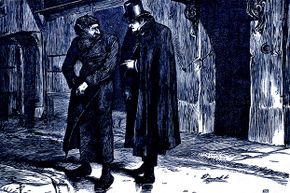Tell someone your workplace is so Dickensian, and your friends will likely understand that you mean the building is rather grimy and dilapidated, or somehow below an acceptable standard. That's because 19th-century English writer Charles Dickens often incorporated ratty homes and workplaces into his novels. Yet others argue that this term is being used incorrectly. Based on Dickens' novels, labeling something "Dickensian" could mean anything from sentimental to having larger-than-life characters. There is no one definition [source: Sherrill]. It's hard to use them in the right context as well since they are not used much in everyday conversation much like the longest word in English.
While terming a run-down office "Dickensian" may be a partially correct usage of the word, there are a surprising number of other historic words that many of us definitely are using erroneously. Like nirvana. Many of us use it as a substitute for heaven or paradise, but the Buddhist word actually means breaking free from the endless cycle of reincarnations — that often entail lives filled with suffering — and achieving absolute blessedness. It's achieving the highest state of enlightenment, which frees us from individual desires and sorrow. That may be a heavenly achievement, but it's not the same as heaven. What other words are you using incorrectly? Let's take a look.
Advertisement










